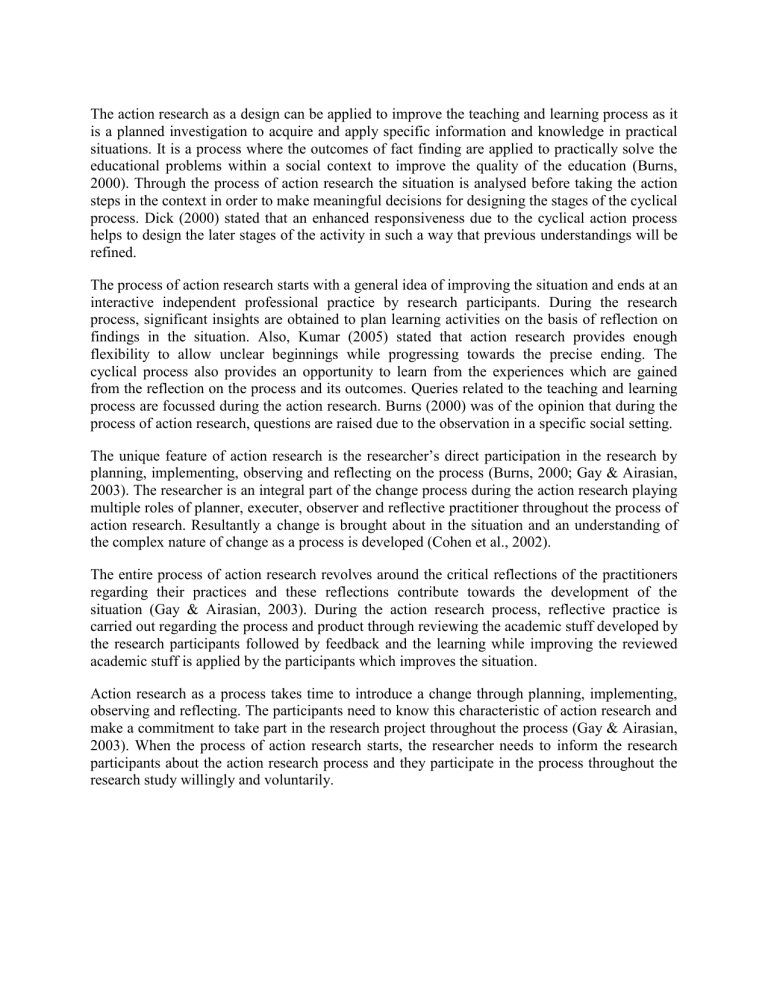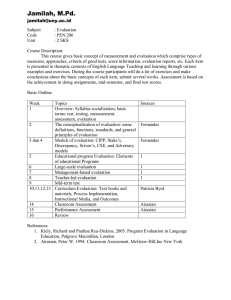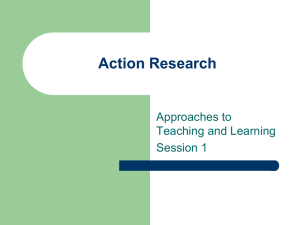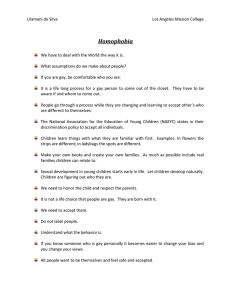
The action research as a design can be applied to improve the teaching and learning process as it is a planned investigation to acquire and apply specific information and knowledge in practical situations. It is a process where the outcomes of fact finding are applied to practically solve the educational problems within a social context to improve the quality of the education (Burns, 2000). Through the process of action research the situation is analysed before taking the action steps in the context in order to make meaningful decisions for designing the stages of the cyclical process. Dick (2000) stated that an enhanced responsiveness due to the cyclical action process helps to design the later stages of the activity in such a way that previous understandings will be refined. The process of action research starts with a general idea of improving the situation and ends at an interactive independent professional practice by research participants. During the research process, significant insights are obtained to plan learning activities on the basis of reflection on findings in the situation. Also, Kumar (2005) stated that action research provides enough flexibility to allow unclear beginnings while progressing towards the precise ending. The cyclical process also provides an opportunity to learn from the experiences which are gained from the reflection on the process and its outcomes. Queries related to the teaching and learning process are focussed during the action research. Burns (2000) was of the opinion that during the process of action research, questions are raised due to the observation in a specific social setting. The unique feature of action research is the researcher’s direct participation in the research by planning, implementing, observing and reflecting on the process (Burns, 2000; Gay & Airasian, 2003). The researcher is an integral part of the change process during the action research playing multiple roles of planner, executer, observer and reflective practitioner throughout the process of action research. Resultantly a change is brought about in the situation and an understanding of the complex nature of change as a process is developed (Cohen et al., 2002). The entire process of action research revolves around the critical reflections of the practitioners regarding their practices and these reflections contribute towards the development of the situation (Gay & Airasian, 2003). During the action research process, reflective practice is carried out regarding the process and product through reviewing the academic stuff developed by the research participants followed by feedback and the learning while improving the reviewed academic stuff is applied by the participants which improves the situation. Action research as a process takes time to introduce a change through planning, implementing, observing and reflecting. The participants need to know this characteristic of action research and make a commitment to take part in the research project throughout the process (Gay & Airasian, 2003). When the process of action research starts, the researcher needs to inform the research participants about the action research process and they participate in the process throughout the research study willingly and voluntarily.


